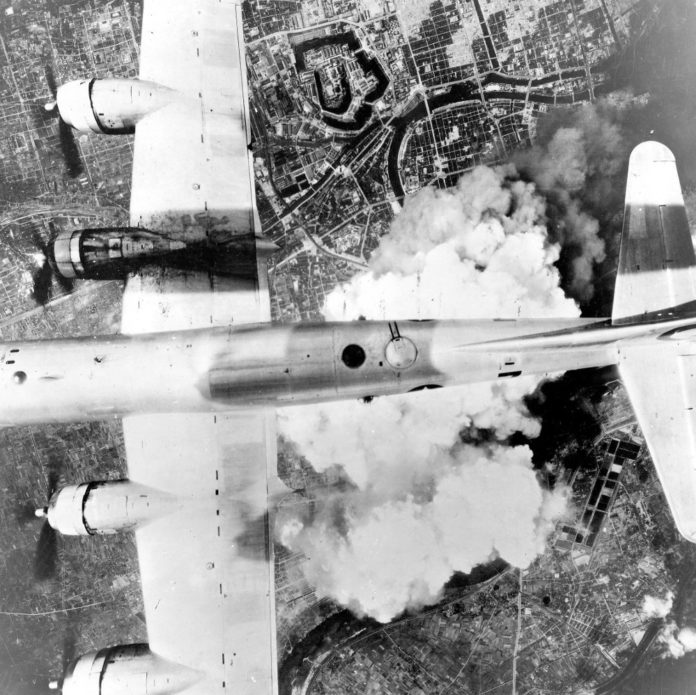
Tens of thousands gathered in Hiroshima on Thursday to mark 70 years since the dropping of the first atomic bomb, with opinion still divided over whether its deadly destruction was justified.
An American B-29 bomber called the Enola Gay dropped the uranium bomb, dubbed “Little Boy”, on Hiroshima exploding some 600m (1,800ft) above the city, at around 08:10 on 6 August 1945 in one of the closing chapters of World War II – and a second one on Nagasaki three days later – It claimed the lives of at least 140,000 people.
Nearly everything around it was incinerated by a wall of heat up to 4,000 degrees Celsius — hot enough to melt steel.
On that day alone, at least 70,000 people are believed to have been killed. Many more died of horrific injuries caused by radiation poisoning in the days, weeks and months that followed.
People across Japan have observed a minute’s silence to mark the anniversary. In Hiroshima, a bell tolled at 08:15 local time – when the US aircraft dropped the bomb that flattened the city centre.
Children, elderly survivors and delegates representing 100 countries were in the crowd with many placing flowers in front of the cenotaph at Peace Memorial Park, as doves were released into the air.
Addressing 40,000 people who attended the commemoration ceremony at Hiroshima’s peace park near the epicenter of the 1945 attack, Mr Shinzō Abe, Prime Minister of Japan, called for worldwide nuclear disarmament.
“As the only country ever attacked by an atomic bomb… we have a mission to create a world without nuclear arms”, Abe told the crowd.He said that that atomic bomb not only killed thousands of people in Hiroshima but also caused unspeakable suffering to survivors.
“Today Hiroshima has been revived,” the Prime Minister said, “and has become a city of culture and prosperity. “Seventy years on I want to reemphasize the necessity of world peace.”
Hiroshima Mayor Mr Kazumi Matsui, described nuclear weapons as an “absolute evil” while urging the world to put an end to them forever.
When we look at our world today, we sometimes have the tendency to think that humans have become more wicked with the passing of years. But this atrocious event that happened close to a century ago reminds us that war, conflicts, backstabbing , betrayal and all other “evils” we know are not the story of today’s age only. When our motives, intentions and actions are not kept in check, there’s no limit to the amount of damage we can cause to ourselves and to others.
It may not be in a form of a uranium bomb sweeping thousands of lives away, but everything we say and do to others on a daily basis out of malice, carelessness , selfishness, wickedness or simply lack of respect, has the potential to cause great and irreversible damage. We constantly need to ask ourselves why we do what we do and if need be, seek help. Because we are limited in our nature, true help can only come from someone greater, and that is God. So much could be said about this but one post alone cannot do it. It’s a journey. If you’d like to talk to us more about God and get some answers, please click on the banner below.
Portion of content sourced from: theguardian.com, yahoo.com
